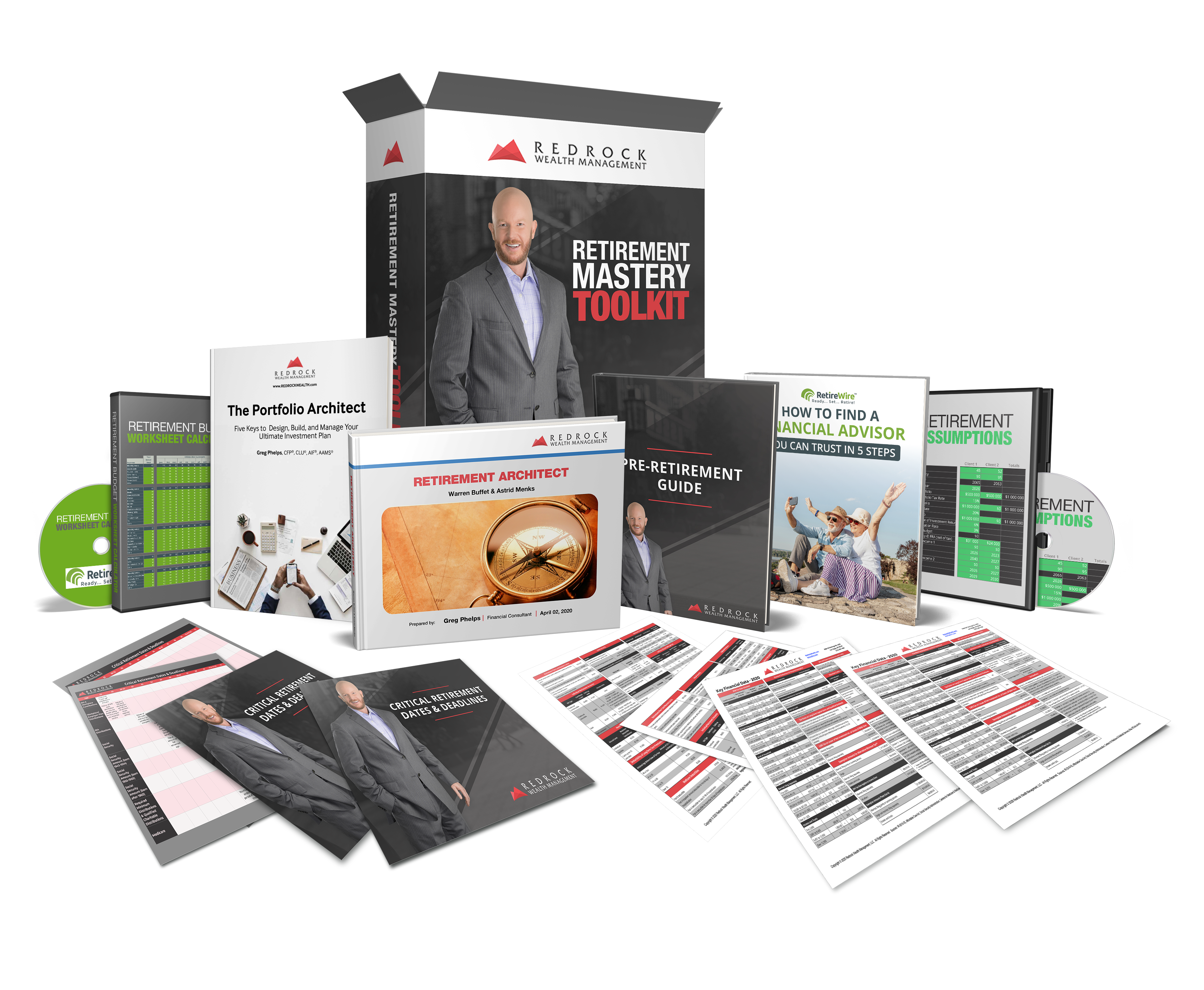One of the areas that Redrock provides the most value for our clients is in your retirement account management. Just because you’ve saved and invested throughout your life doesn’t mean that the actual management of the account falls to the wayside.
Even after you retire some of the things you still need to think about is the most tax efficient way to withdraw from your IRA or 401k, whether or not Roth conversions make sense for your situation and if you have the right investments in the most optimal accounts. It’s better to start thinking about these things early, but there’s no better time than the present and with the right planning, you can actually save tens of thousands of dollars by implementing some of these strategies.
401(k) Management
Let’s say you’re still working and saving into your 401k. What should you invest in? Unfortunately, with 401(k)’s you don’t have the option to invest in any fund you want. Your individual 401(k) plan will dictate which funds you’re allowed to invest in. It’s common for there to be a few dozen options, which isn’t ideal, but you can still get proper diversification. There are just a few things to consider.
For starters, you need to be mindful of fees! When we advise our clients on their 401(k) investments it’s common to see them invested in funds with high fees (1%+) which kill their returns. Target date funds do a good job of proper, global diversification and rebalance automatically into bonds the older you get while also maintaining incredibly low fees!
Another consideration is whether or not to contribute to a Roth 401(k), assuming your employer has that option. Roth 401(k) contributions are after-tax so all the growth and distributions will be tax-free in retirement. Conventional wisdom has told us that Roth 401(k)’s are only a good option for young people, but they are a very attractive option for those nearing retirement as well. This is why having a comprehensive financial plan is imperative because your plan will dictate which option is the most optimal for your situation.
It’s also critical to contribute as much as you can to your 401(k). For 2020, annual contributions are $19,500 with a $6,500 “catch-up” contribution for those 50 and over. And that’s not even taking into account your employer match!
When we meet with our clients and prospects, we ensure upfront that they are contributing to the right 401(k) account with the best investment options possible.
Tax-Efficient Decumulation
Not only are there plenty of considerations for saving, but there are also plenty for spending as well. You probably thought spending down your assets would be straight forward now that you’re retired…think again! How you spend your money and the order from which you spend it can have a huge impact on how long your money lasts.
This is where spending down your retirement portfolio in the most tax-efficient way possibly comes into play. Research has shown that retirees should tap into taxable investment accounts first for cash flows, rather than spending from IRAs or Roth IRAs.
The objective is to make sure that the client is not pushed into a higher tax bracket earlier in retirement. This way, you can control how to take from a combination of taxable IRA distributions and tax-free Roth IRAs to prevent ever being pushed into the top tax brackets in the future. The other benefit of this is that it allows the Roth IRA to continue growing tax-free even longer! Tax-efficient accumulation is a powerful retirement account management strategy that can save you tens of thousands of dollars.
Roth Conversions
A Roth IRA conversion is the process of transferring funds from a traditional IRA into a Roth IRA account. The obvious benefit is to have tax free withdrawals in retirement. A conversion makes sense for those who believe their marginal tax bracket will be higher in retirement.
There’s also another layer to this even if you believe that your tax bracket will be lower in retirement. In times when the stock market is falling, it would make more sense to execute conversions because you’ll be paying taxes on your pre-tax assets, which would be lower due to reduced share prices. Once the market rebounds and share prices are higher, you’ll have tax free growth assets subject to tax free withdrawals.
This is a retirement account management strategy we’ve employed for most of our clients in strategic opportunities when it makes sense to do so.

0 Comments